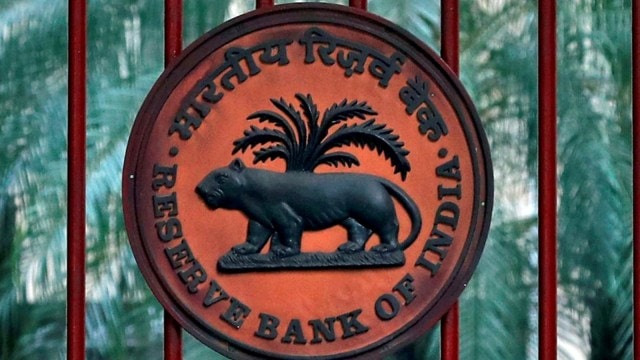RBI Board reviews Economic Capital Framework; dividend to govt may rise up to Rs 3 lakh crore
The central board of the RBI is likely to meet on May 23 to determine the dividend amount to be transferred to the government for FY25, in line with the revised Economic Capital Framework.
 The RBI’s defence of the rupee was not without its cost, with India’s foreign exchange reserves slumping by around $80 billion betweeen late September 2024 and mid-January 2025 to under $625 billion.
The RBI’s defence of the rupee was not without its cost, with India’s foreign exchange reserves slumping by around $80 billion betweeen late September 2024 and mid-January 2025 to under $625 billion.The central board of directors of the Reserve Bank of India (RBI) on Thursday reviewed the Economic Capital Framework (ECF), which is used to determine risk provisioning and surplus distribution by the central bank to the government.
Based on the ECF, the RBI transfers dividend to the government every year. According to various estimates, the RBI may transfer Rs 2.5 lakh crore to Rs 3 lakh crore as surplus to the government for the accounting year 2024-25. This would be a fresh record dividend transfer by the RBI to the government. For the accounting year 2023-24, the RBI had transferred the highest-ever surplus transfer of Rs 2.11 lakh crore to the government
The central board of the RBI is likely to meet on May 23 to determine the dividend amount to be transferred to the government for FY25, in line with the revised Economic Capital Framework.
“The 615th meeting of the Central Board of Directors of the RBI was held today in Mumbai under the Chairmanship of Sanjay Malhotra, Governor. As part of the agenda, the Board reviewed the Economic Capital Framework (ECF) of the RBI,” the central bank said on Thursday. Higher dividend payout by the RBI will help the government in managing the fiscal deficit. The higher surplus transfer is also likely to improve liquidity conditions in the system.
The RBI transfers surplus to the government from its profit after setting aside Contingency Risk Buffer (CRB). The RBI’s CRB is the country’s savings for a ‘rainy day’ (a financial stability crisis) which the central bank consciously maintained in view of its role as Lender of Last Resort (LoLR).
In FY25, the central bank’s earnings in FY25 were robust, led mainly by sale of dollars to curb volatility in the rupee and sharp rise in gold prices and appreciation in prices of government securities held by the RBI.
“With the announcement of the RBI dividend this month, we expect banking liquidity to be approximately Rs 6 lakh crore. Such high banking liquidity could lead to higher rally at the short end of the curve,” as per a recent report by Axis Mutual Fund.
Based on the Economic Capital Framework (ECF), the RBI transfers dividend to the government every year. An expert committee led by Bimal Jalan, former RBI Governor, had recommended that the framework may be periodically reviewed every five years. Accordingly, the ECF review was scheduled for August 2024.
An expert committee led by Bimal Jalan, former RBI Governor, was set up in November 2018, to review the ECL framework of the RBI. In August 2019, the RBI had adopted the recommendations of the expert committee on ECF. The committee had suggested that the RBI’s contingency risk buffer (CRB) should be maintained in a range of 5.5 per cent to 6.5 per cent of the central bank’s balance sheet. In FY24, the RBI’s contingency provisioning was around Rs 42,800 crore.
In 2022-23, the RBI’s dividend to the government was Rs 87,416 crore. In 2021-22, the RBI transferred a surplus of Rs 30,307 crore, which was the lowest in 10 years. The RBI paid Rs 99,122 crore as dividend to the government in FY2021. During the accounting year 2019-20, Rs 57,128 crore of surplus was transferred to the government.
The Jalan committee had also recommended that the framework may be periodically reviewed every five years. Accordingly, the ECF review was scheduled for August 2024.


- 01
- 02
- 03
- 04
- 05





























